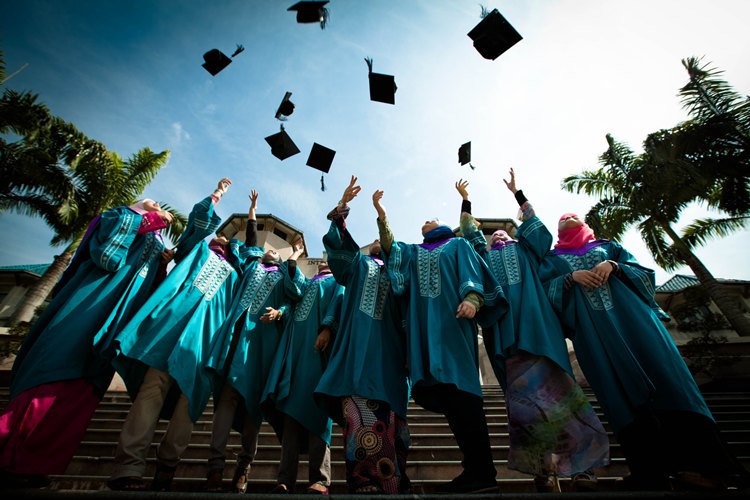By Ahmad Faizuddin
It’s a new semester. A new academic session too for fresh students joining IIUM. The new semester has just begun this week. The university campus is back with soul and life. There are fresh faces not only from Malaysia but also from other parts of the world, far and near.
I met several undergraduate and postgraduate students from different fields like education, political science, economic and engineering. They appeared very excited to study in this university. I joined them and sat down for almost an hour trying to reflect on a number of important issues surrounding Muslim countries and thinking aloud what we could do or contribute for the betterment of ummah when we graduate later.
Interestingly, our discussions were thought-provoking. Within that time we looked at several important issues, such as education, social, politics, and environment. Deep down in my heart, I could feel that someday many of these students who are studying here would one day become leaders who would manage or even determine the policies of their respective countries.
We started with educational issues. Low quality education creates many problems in Muslim countries. Often what many countries do is to create a œtrial and error model of curriculum. Indonesia, for example, has just introduced a new curriculum called Curriculum 2013. It has both the pros and cons. Due to the abolition of vital lessons at primary level, such as science and English language, some said it would cause more unemployment. The main difference between previous curriculums and Curriculum 2013 is that the latter emphasises attitude as a priority than knowledge and skill competencies.
How can we reach a brighter future without proper competencies then? Students will waste their six years of elementary school without learning these vital subjects. While in junior and senior high levels, more lessons in science and mathematic will be added, but the information and communication technology will be removed. By doing so, I believe we need to worry about students future in securing jobs. This is because we are living in a technological era where mastering technology will be very crucial to survive. The most challenging part is that teachers are not familiar and not ready to teach the new curriculum, let alone the students.
Malaysia faces almost similar problem. The use of English in teaching and learning has been reduced. The English proficiency among students these days is really worrisome. We should emphasise more on the language if we want to compete with others globally. English is important as it is the international language. Thus, equipping students with the English language to face global challenges is significant.
We then discussed social issue, especially the unemployment problem. It is getting harder to get a job in todays world. Not many people have proper skills and qualities required. On the other hand, the number of workforce and jobs created is not proportional with the number graduates produced each year. Hence, the situation has become very competitive and only selective few could survive.
Imagine the effects of unemployment. What will happen in our daily life? People will do anything necessary to survive to the extent of committing crimes. And still there are a number of people who are not awakened by these development. If we want to get out of this situation, we must wake up and do something. At least, we should have a strong motivation to change to gear ourselves for a brighter future. The government too can help by providing education and training to help reduce unemployment.
Our discussion continued on the topics of natural resources and environmental issues. Most Muslim countries are fortunate to be blessed with rich natural resources. We have oil, gas, coal, gold, etc. Sadly, foreigners exploit almost all of these economic sectors, leaving us with the leftovers. Until when will we let this happen? We felt we should not let others interfere with our policies on natural resources. The government and society should work together to improve the economy. Some Muslim countries also have a lot of renewable energy. We should train our people to utilise the resources, so local community could reap the benefits, not just the foreigners.
Similarly, we do not really care about our environment. We can still see people throwing rubbish everywhere and into the streams and rivers. Do not wait until people call our country a ‘rubbish’ country. Let us clean our environment properly. In big cities, pollution has become a big issue among us since everybody is forced to use his or her own vehicle. We need to improve the public transport to reduce pollution. Farmers too should reduce the use of chemicals to avoid peoples health from being contaminated.
Finally, it is said that knowledge and good behaviour are the two factors that will lead people to reach their dreams. The more we have it, the better it will be for our future. Hence, producing knowledgeable people with good behaviour will bring great advantages to our respective country. Here is where education plays a vital role. There is still hope for a brighter future for the ummah. ***
The writer is a Ph.D. student at Kulliyyah of Education, Educational Management and Leadership, International Islamic University Malaysia (IIUM)ÂPhoto courtesy of Islamic Education
